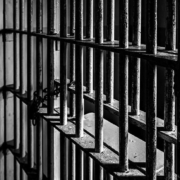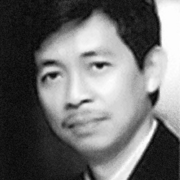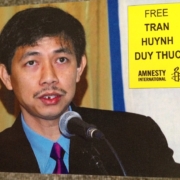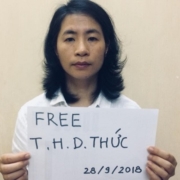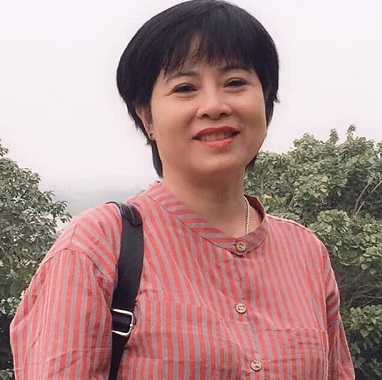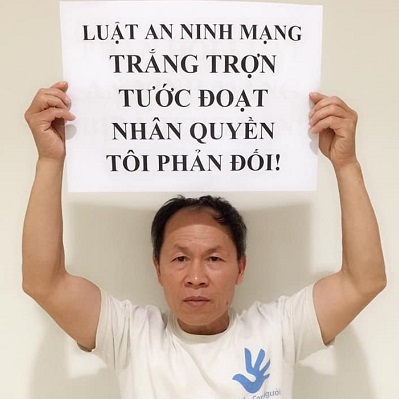Suppression of Civil Society Strangling Prospects for Sustainable Development: Project88 Submission to Dr. Surya Deva, United Nations Special Rapporteur on Development
In addition to our joint submission with the Vietnam Climate Defenders Coalition, Project88 also lodged its own submission to the UN Special Rapporteur on the Right to Development, Professor Surya Deva, ahead of Deva’s visit to Vietnam from Nov. 6-15. In it, we highlight a myriad of issues facing civil society actors that are preventing them from meaningfully contributing to sustainable development in Vietnam, especially progress in implementing climate change mitigation measures, including restrictions on foreign development aid. We also note that in the past two years, the Vietnamese government has begun to target people who run non-governmental organizations that work on development issues. Of the energy policy and environmental activists who have been arrested and imprisoned, many have worked previously with the government and were working on issues that are official government policy priorities. These arrests call into question Vietnam’s commitment to sustainable development in the country. Read our full submission below.
***
October 30, 2023
To Surya Deva, the Special Rapporteur on the right to development
Dear Professor Surya Deva,
We write to you ahead of your visit to Vietnam to provide you with an overview of the suppression of civil society and the shrinking civic space in the country. Organizations that focus on sustainable development, particularly those that work on energy policy and the environment, are under tremendous threat from state authorities. In recent years, activists working on development have been arrested on false charges, development organizations have been shut down and excluded from participating in policymaking, and the government has introduced onerous restrictions on the ability of development organizations to receive foreign funding.
As you have noted, the ability of civil society to participate in policymaking and collaborate with the authorities and other relevant stakeholders ‘is fundamental to the advancement of the right to development and of human rights more broadly.’1 In addition, the right of civil society to participate in development is enumerated in the 1986 Declaration on the Right to Development. The Vietnamese government, however, has long excluded NGOs from participating in development policy planning processes. This exclusion has intensified in recent years as Vietnam, under the rule of general secretary of the communist party Nguyen Phu Trong, has enacted new restrictions on civil society and the foreign funding of development activities, while criminalizing civil society movements and policy activism.
Over the last two years, the Vietnamese government has arrested or imprisoned six environmental human rights defenders who were working towards achieving the Sustainable Development Goals (SDGs). The 2030 Agenda for Sustainable Development and the Paris Agreement on climate change both direct states to strengthen public participation and ensure the inclusion of civil society. Instead of following this guidance, Vietnam has chosen to further marginalize civil society from development processes.
Suppression of civil society
Vietnam has an abysmal record on human rights, and a crackdown on activism and dissent that started in 2016 has continued to intensify in recent years. Under the crackdown on civil society, scores of dissenters and human rights activists have been imprisoned on vaguely worded national security or defamation charges. According to Project88’s database, Vietnam currently imprisons close to 200 human rights defenders. 2 This figure masks the number of people who have been persecuted into silence or forced into exile.
In the past two years, there has been a shift in the type of people arrested by the Vietnamese government. Previously, Vietnam generally targeted human rights activists and advocates for democratic reform. In recent years, however, the government has begun to target people who run non-governmental organizations that work on development issues. Of the energy policy and environmental activists who have been arrested and imprisoned, many have worked previously with the government and were working on issues that are official government policy priorities. These arrests call into question Vietnam’s commitment to sustainable development in the country.
Persecution of climate activists
Goal 16 of the 2030 Agenda for Sustainable Development commits states to work to ‘[p]romote peaceful and inclusive societies for sustainable development, provide access to justice for all and build effective, accountable and inclusive institutions at all levels.’ 3 To effectively contribute to Vietnam’s development, and to effectively hold the government to account, the Vietnamese people must be free to participate in the conduct of public affairs without fear of repercussion. The exercise of the rights to freedom of association and of expression enable civil society to contribute effectively to the implementation of, and monitoring of, the SDGs. The closing of the civic space in Vietnam through the criminalization of climate activism and exclusion of civil society from participating in the energy transition puts Vietnam’s development into jeopardy.
Over the past two years, Vietnam’s one-party state has arrested or imprisoned six key leaders of the country’s climate change movement—five on false charges of tax evasion and one for allegedly misappropriating government documents. Nguy Thi Khanh, Dang Dinh Bach, Mai Phan Loi, Bach Hung Duong, and Hoang Thi Minh Hong were all imprisoned on spurious tax evasion charges since 2021.4 In addition, Vietnam arrested Ngo Thi To Nhien, the head of an energy policy think-tank, in September 2023.
An investigation by Project88 published in April documents clear evidence that these prosecutions are politically driven and designed to criminalize policy activism.5 The activists’ efforts to organize non-profits into powerful advocacy coalitions and promote a civil society movement, brought them into conflict with the Communist Party of Vietnam. The common thread in these cases is that all of the individuals involved ran organizations that conducted advocacy on energy policy, and all received foreign funding to carry out this work.
On December 14, 2022, the Vietnamese government formed a Just Energy Transition Partnership (JETP) with the International Partners Group (IPG), consisting of the European Union, along with the United Kingdom, the United States of America, Japan, Germany, France, Italy, Canada, Denmark, and Norway. Under the terms of the partnership, over the next three to five years, Vietnam will receive $15.5 billion USD—half from IPG members and half from private investment through the Glasgow Financial Alliance for Net Zero (GFANZ) working group.6 The funding is to be used to invest in areas such as wind, solar, and energy efficiency, with an end goal of decreasing emissions and coal reliance in Vietnam as well as increasing the share of renewable energy used by the country.7
As part of the JETP, Vietnam is required to regularly consult with civil society. Vietnam cannot ensure a ‘just’ energy transition without allowing the participation of environmental activists and other members of Vietnamese civil society, particularly those who are critical of current governmental policies.8 A robust civil society is necessary to hold the government to account to ensure that any energy transition is protecting the environment, the rights of workers, and members of marginalized communities.
However, despite overtures made by the Vietnamese government regarding the importance of transparency and participation, state authorities have continued to restrict the civic space with regards to environmental activism. Several of the energy policy activists arrested by Vietnam were working directly with the United Nations (specifically, UNOPS) and the government on the implementation of the JETP. The government has made it very difficult for any environmental organization to function in the country, particularly if the organization attempts to conduct policy research or advocacy on energy and climate change.
Restrictions on foreign development aid
Vietnam has also taken measures to restrict the ability of NGOs that operate in the country to receive foreign funding. The ability of NGOs to access foreign aid is essential if they are to participate in advancing the sustainable development of Vietnam. Because of the importance of foreign funds to development work, efforts by state authorities to limit the ability of NGOs to obtain foreign funds are concerning. The Special Rapporteur on the rights to freedom of peaceful assembly and of association has stated, ‘A critical element within an enabling environment for the work of civil society towards low-emissions and climate-resilient societies is the ability to access funding from national, foreign, and international sources. Limitations on associations’ access to funding . . . are highly suspect and should be subject to strict rights-based scrutiny.’9 In recent years, Vietnam has nevertheless taken steps to prevent NGOs from being able to access foreign funding or participate in the sustainable development goals of the country.
On December 10, 2021, the Special Rapporteur on the rights to freedom of peaceful assembly and of association and the Special Rapporteur on the right to freedom of opinion and expression wrote a letter to the Vietnamese government addressing restrictions Vietnam had imposed on the ability of NGOs to operate in the country and receive funding.10
Decree 80/2020/ND-CP, enacted July 8, 2020, and Decree 56/2020/ND-CP, enacted May 25, 2020, regulate the activities and funding of NGOs operating in Vietnam. The decrees impose onerous requirements on the registration of NGOs and the funding of projects by, for example, expanding the role of the Ministry of Public Security in approving foreign-funded development projects. In addition, Decision 06/2020/QD-Ttg, announced February 21, 2020, requires that organizations receive approval from a number of government agencies, as well as the Prime Minister, to host any conference or seminar that relates to national sovereignty, security, human rights, ethnicity, or religion. These decrees and decisions have significantly weakened the ability of Vietnamese NGOs to operate independently or receive the funding necessary to participate in the sustainable development of Vietnam.
More recently, the Vietnamese government has also made numerous statements in recent months expressing concern that foreign donors are funding civil society to interfere in Vietnam’s internal affairs on certain issues, including the country’s energy transition.11
On Sept. 15, 2023, for instance, Nhan Dan, the official newspaper and mouthpiece of the Communist Party of Vietnam, took aim at foreign donors who are funding NGOs in Vietnam.12 The editorial claimed that a subset of the 388 foreign NGOs operating in the country are using international cooperation on certain issues, including the country’s energy transition, as a cover to interfere in Vietnam’s internal affairs:
‘Some foreign non-governmental organizations take advantage of sponsorship activities to entice non-governmental organizations operating in the field of science and technology13 to participate in projects that risk violating the country’s security, social order, and safety. By commissioning research, they direct individuals and organizations operating in the field of science and technology to conduct research and publish a series of reports and surveys containing one-sided, negative content, tarnishing the situation of the country and people of Vietnam.’14
This editorial, which expresses the official view of the communist party, has come amid a deepening crackdown upon civil society and efforts to restrict foreign aid.
In 2016, the party leadership passed Resolution 04-NQ/TW, which expressed hostility to the very concept of civil society.15 Resolution 4 states that the advocacy by party members for a stronger civil society ‘undermines the leadership role of the party’.16 A guidance note on the implementation of the resolution warns that the ‘enemy and reactionary forces have stepped up activities against us’, singling out ‘the US and other Western countries [that] are using aid to shape [Vietnam’s] law and policy’, while ‘providing aid to domestic “nongovernmental” organizations to promote a Western model of “civil society”’.17
Vietnam’s rhetoric against the foreign funding of NGOs has moved beyond mere words. Each of the six environmental activists who were arrested has received funding from foreign sources. In addition to the arrests, each of the organizations that the activists ran were forced to shut down. This pattern has made other NGOs reluctant to weigh in on matters of public import for fear of closure. According to an NGO administrator interviewed by Project88, the government has never been transparent about the tax status of local NGOs and, in recent years, has used this ambiguity against them.18 Due to fear of reprisal, Vietnamese civil society has also become less willing to participate with the UN. In the fourth cycle of the Universal Periodic Review of Vietnam, for instance, very few NGOs chose to engage with the Human Rights Council for fear of arrest.19
Potential meetings
On your visit to Vietnam, it is essential that you meet with members of civil society working on human rights and development. There is nobody better to consult to gain an understanding of the onerous burdens on development organizations, the risks of conducting policy advocacy within Vietnam, and the difficulties in obtaining funding necessary to carry out their work.
Despite the seriousness of this issue, there is very little transparent information about Vietnam’s policies regarding restrictions on foreign aid and the effect of these policies on the ability of Vietnamese civil society to participate in the sustainable development of the country. The statements by the government, as well as the attacks on environmental activists who have received foreign funds, indicate that there is a concerted effort in Vietnam to limit the ability of NGOs to receive foreign funding and to punish any organization or activist that both receives foreign funding and engages in policy advocacy. However, there is not much information on what precisely the Vietnamese government is doing, and the scope of their attack. You are perfectly positioned to hear from Vietnamese civil society and foreign development donors to determine what the extent of the government’s efforts are, if the government has been effective in stopping the flow of foreign funds to NGOs, whether NGOs have found themselves less likely to accept foreign funding or engage in policy advocacy, and if the effect of the government’s policies are limited to environmental NGOs or development organizations as a whole.
To answer these questions, you should consider setting up interviews with representatives of local and international NGOs, as well as bilateral and multilateral development aid donors to understand the dynamics of these new restrictions on foreign aid.
Regarding efforts to address climate change and Vietnam’s energy transition, you should meet with the ADB, UNOPS’ Southeast Asia Energy Transition Partnership team (Bangkok), UNDP Vietnam, and partner organizations of the Viet Nam Energy Partnership Group, including KFW Bank, GIZ, JICA, the Global Green Growth Institute, and the World Bank, to establish what, if anything, is being done to involve civil society in Vietnam’s energy transition. Each of these organizations provides grants to fund development projects in Vietnam.
Each of them can provide an overview of the difficulties NGOs face in achieving funding and in carrying out development projects in the country. Finally, many of these organizations have worked directly with one or more of the arrested energy activists in the country, particularly with Ngo Thi To Nhien.
As a part of your visit to Vietnam, we advise that you attempt to answer the following questions regarding the restriction on development aid to Vietnamese civil society:
1. What are Vietnamese authorities doing to restrict foreign funding to NGOs?
a. What are Vietnam’s policies regarding the flow of foreign funding to NGOs in the country?
b. What actions has Vietnam taken outside of these policies to restrict foreign funding?
2. Are these efforts permissible under international law?
3. What accounts for the recent changes to Vietnamese policy and recent statements by the government with regards to foreign funding of NGOs?
a. Why has there been a recent push to crack down on foreign funding in Vietnam?
b. Why do these efforts appear to be linked to environmental activism and energy policy in particular?
c. How do these efforts fit into the regional trend, as seen in Thailand, China, Cambodia, and elsewhere?
4. What is the effect of these efforts on the ability of NGOs in the country to receive funding and fulfill their missions?
a. To what extent does Vietnam use foreign funding as a pretext to shutdown NGOs that attempt to influence government policy, particular with regards to energy policy?
b. What has been the effect of this crackdown on civil society in the country?
c. Are only local NGOs affected, or does this suppression affect all development organizations in the country?
We appreciate your valuable attention and look forward to urgent action.
Sincerely,
Benjamin Swanton
Co-Director, Project88
Michael Altman-Lupu
Human Rights Researcher, Project88
Project88
[email protected], www.the88project.org
***
1 Human Rights Council (2023, July 5). Visit to Albania Report of the Special Rapporteur on the right to development. UN Doc. A/HRC/54/27/Add.1 at para 56.
2 Database of persecuted activists in Vietnam. (2023, August 12). Project88. https://the88project.org/database/
3 UNGA (2015, Oct. 21) Transforming our world: the 2030 Agenda for Sustainable Development. UN Doc. A/RES/70/1, Goal 16.
4 Swanton, Ben (2023). Weaponizing the law to prosecute the Vietnam Four. Project88. https://the88project.org/wpcontent/uploads/2023/04/Weaponizing-the-law-report-Project-88-ENG.pdf
5 Ibid.
6 Parameswaran, Prashanth (2023, July 18). Vietnam’s Big Global Partnership Gets a New Launch, But Bigger Tests Lie Ahead. Asean Wonk. Retrieved Oct. 20, 2023, from https://www.aseanwonk.com/p/vietnam-jetp-energy-climate
7 Ibid.
8 Robertson, Phil (2023, Sept. 9). Biden Should Press Climate Activist Rights in Vietnam. Asia Times. Retrieved Oct. 20, 2023, from https://asiatimes.com/2023/09/biden-should-press-climate-activist-rights-in-vietnam/
9 Human Rights Council (July 23, 2021). Exercise of the rights to freedom of peaceful assembly and of association as essential to advancing climate justice. UN Doc. A/76/222 at para 56.
10 Special Rapporteur on the rights to freedom of peaceful assembly and of association and the Special Rapporteur on the right to freedom of opinion and expression (2021, Dec. 10). Ref: OL VNM 7/2021. https://spcommreports.ohchr.org/TMResultsBase/DownLoadPublicCommunicationFile?gId=26885
11 Swanton, Ben (2023). Weaponizing the law to prosecute the Vietnam Four. Project88. https://the88project.org/wpcontent/uploads/2023/04/Weaponizing-the-law-report-Project-88-ENG.pdf
12 Quang Minh (2023, September 15). Không được phép can thiệp, xâm phạm quyền, lợi ích hợp pháp của đất nước và nhân dân Việt Nam. Báo Nhân Dân điện tử. Retrieved Oct. 4, 2023, from https://nhandan.vn/khong-duoc-phep-can-thiep-xam-pham-quyenloi-ich-hop-phap-cua-dat-nuoc-va-nhan-dan-viet-nam-post772574.html
13 Vietnamese law does not recognize local non-governmental organizations. Most NGOs are registered as science and technology associations. Swanton, Ben (2023). Weaponizing the law to prosecute the Vietnam Four. Project88. https://the88project.org/wpcontent/uploads/2023/04/Weaponizing-the-law-report-Project-88-ENG.pdf, p.15.
14 Quang Minh (2023, September 15). Không được phép can thiệp, xâm phạm quyền, lợi ích hợp pháp của đất nước và nhân dân Việt Nam. Báo Nhân Dân điện tử. Retrieved Oct. 4, 2023, from https://nhandan.vn/khong-duoc-phep-can-thiep-xam-pham-quyenloi-ich-hop-phap-cua-dat-nuoc-va-nhan-dan-viet-nam-post772574.html
15 Swanton, Ben (2023). Weaponizing the law to prosecute the Vietnam Four. Project88. https://the88project.org/wpcontent/uploads/2023/04/Weaponizing-the-law-report-Project-88-ENG.pdf
16 Ibid.
17 Ibid.
18 Ibid.
19 Radio Free Asia (2023, Sept. 22). Vietnamese NGOs shy from UN engagement fearing government reprisal. https://www.rfa.org/english/news/vietnam/ngos-09222023111250.html
© 2023 The 88 Project


